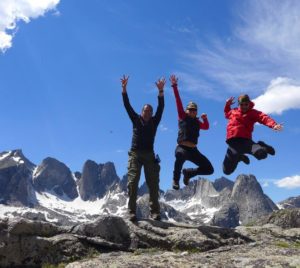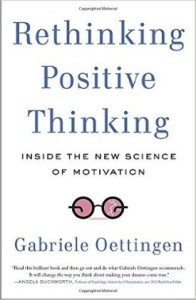Mind Over Mosquitoes…
February 7th, 2018
“Between stimulus and response there is a space. In that space is our power to choose our response.” –Viktor Frankl
The date was July 6, 2014. We left Lander, WY, at 3:30am, under a dark sky full of stars, and hit the road that would lead us to the trailhead. We were amped up on caffeine, our anticipation for the adventure was palpable, and the truck’s stereo was turned way up. (For better or worse, I have a fantastic memory, and I can remember some of the songs that blared from the speakers on that drive in the wee hours of the morning, which included Red Solo Cup, Where is my Mind and Happy.)
I had hired my friend, Randy, to drive us. It would be a two-hour drive on gravel and dirt roads, and I didn’t want to burden myself with such a drive at the front end of what would be a challenging adventure that I was responsible for leading.
About a year earlier, Joel, a former colleague, client – and most importantly, a dear friend – asked if I’d be willing to organize and lead an epic backpacking program for he and his friend, Alan.
Over the years, Joel has done so much to help my businesses, and he was one of the first people to trust me to be his coach, making him special to me. So of course I said Yes.
We arrived to Big Sandy Opening Trailhead at 5:30am. I jumped out of the truck to start unloading our backpacks. I love to being on the trail before sunrise, so I can be out in the wilderness when the sun rises and shines its first light on the mountains. We were cutting it close, so I was hurrying and trying to get us out of the truck and onto the trail as quickly as possible.
But not so fast. Unfortunately, as soon as we got out of the truck, we were overwhelmed by mosquitoes. I do sometimes exaggerate, but this isn’t one of those times. We were under siege by millions of mosquitoes. They were all over us.
I know that July in Wyoming’s Wind River Range is often buggy. While I’ve had some of my best adventures in July, I knew there was a good chance that mosquitoes could be a part of our adventure.
As we all cursed the mosquitoes and tried to locate the mosquito head nets in our backpacks, I recalled a Skype call I had had with Joel and Alan six months earlier. During the call, we were trying to determine a date range that would work for all three of us. It would have to be July or September. I was sharing with Joel and Alan that in July, the weather would be great, but there would be a good chance of mosquitoes. I remember emphasizing, “The mosquitoes could be really, really bad,” to which Alan responded, with a chuckle, that he was from New Jersey where there are huge mosquitoes, adding,“I’m not afraid.” And so we decided on July.
As we swatted and cursed the mosquitoes, I wondered if Alan still felt that way. Thankfully we quickly located, and put on, our bug head nets. (This $5 item would prove to be the most valuable piece of gear for the adventure.)
As Randy drove off, I almost cried watching him leave us behind. The mosquitoes were so bad. I had never seen so many of them at once, and I thought, if this were Jerry and the boys and I, it would be a No Go. But this was a Go, regardless of the mosquitoes. Joel had come from Atlanta, and Alan from Malibu. Both are extremely busy leaders, and free time for them is rare. We had been planning this adventure for six months. There was no turning back.
As we entered the forest, and started down the trail, I could hear Joel and Alan cursing the mosquitoes and slapping their various body parts in an attempt to kill, or swat the pesky insects away.
I was doing the same thing, although I kept my cursing to myself. I thought to myself, in anger: Are you kidding me? These mosquitoes are going to ruin this trip before it even starts. I had already been feeling a little nervous, what with wanting to make sure to provide an unforgettable, possibly even transformational, experience for these guys. The swarms of mosquitoes compounded my nervousness.
After a few minutes of walking, and hearing the guys’ cursing and swatting, I remembered, with great relief, the amount of whiskey they had packed. Thank God for the whiskey! I thought to myself. Back at the hotel, I had noticed the abundance of whiskey they were trying to fit into their backpacks, and wondered if it was excessive, and may have even questioned the wisdom of their bringing so much liquor along on what would be physically demanding adventure, not to mention one that would be at altitude. Now I didn’t have any doubt, and I was thankful for their wisdom.
More seriously, though, I realized that how I responded to these mosquitoes would likely influence how Joel and Alan would respond to the mosquitoes. I watched and listened as the swarms hovered in front of my face and all around me. Mosquitoes literally filled the air. (Their buzzing was so loud and constant that I could still hear them a week after our trip!). But then I noticed that the mosquitoes were not getting in. Our head nets were keeping them out. In addition to the head nets, we each wore pants, and long-sleeve shirts, and had sprayed some Off on ourselves before starting. I took stock of all this, and once again, confirmed that the mosquitoes were not getting into the head net, and they were not biting. We were protected.
It was then that I also remembered the words of the late Viktor Frankl. (What would I do without all of the books I’ve read, and the wisdom they have imparted on me?)
Frankl was an Austrian neurologist and psychologist, and a Nazi concentration camp survivor. He survived three years in camps. Every day in the camps, people all around Frankl died, yet he lived. After his experience, he wrote Man’s Search for Meaning, which is one of the most influential books I’ve ever read. I’ve read the book three times, and will likely read it several more times.
While starting up the trail, with my cursing and mosquito-swatting friends close behind, I thought of some of Frankl’s words: “Everything can be taken from a man but one thing: the last of the human freedoms—to choose one’s attitude in any given set of circumstances, to choose one’s own way.” I recalled how Frankl was able to choose his existence, and how that made all the difference for him, despite his terrible, life-threatening circumstances.
I decided right then, just minutes into our backpacking adventure, and under siege by mosquitoes, to choose my mindset. Specifically, I decided, “I will not let these mosquitoes hijack this adventure.”
Right there and then, everything would change for the better. And doing that – changing my mindset – made all the difference.
The mosquitoes, though in great number and incredibly annoying, did not hijack our adventure. Despite the fact that almost all of our photos show us wearing our mosquito head nets, the mosquitoes seldom come up when we recall our experience in the wilderness that July. Despite the mosquitoes, ours was an unforgettable and inspiring adventure.

Yeehaw! Jumping on Jackass Pass, a rare moment that was breezy and therefore, at least for a moment, mosquito-free.
I share this story to illustrate that we all have the power to change our mindset. And yet, to tell the story honestly, it’s important to also share that I didn’t make that decision to change my mindset only that one time, at the start of our adventure. Rather, I made that decision, and chose that mindset, probably hundreds of times over the course of the five days.
And doing so made all the difference.
As I recall this story, I must share another realization. If the adventure were a few years earlier, I seriously doubt I would have had the maturity or the ability to have noticed my thoughts, and to have consciously decided to change my mindset. And I dread even thinking about how different the experience might have been as a result.
Let me explain. I promise there’s a nugget. 🙂
I have meditated off and on for almost 30 years. Add to that, I hike about 500 miles, alone, each year. In other words, I experience a great deal of “mindfulness.”
But it wasn’t until 2012, after seeing Andy Puddicombe’s wonderful Ted Talk and learning about the Headspace app, that I committed to practicing mindfulness on a regular basis. And Thank God I did.
By the time I was leading Joel and Alan on our Epic adventure, I had spent 10-20 minutes every single weekday morning for 18 months in my simple mindfulness practice.
Sitting alone with nothing but my thoughts on a regular basis has changed my life in a subtle but important way. For the record, and this will not be a surprise to people who know me well, I have an overactive mind. When I sit in mindfulness, my mind and thoughts wander away from me over and over again. So, in my mindfulness practice, I am constantly working to “fetch” and bring back my wandering attention, to return it to my breath. Let’s just say, I get a lot of practice at redirecting my attention. (I used to think this meant I was “bad” at mindfulness or meditation, when in fact, I’ve come to appreciate the fact that it just means I get a lot of practice at redirecting and focusing my attention.) In the process of all this mindfulness practice, I have learned how to be an “observer” of my thoughts.
Consider the quote I included at the very top of this story: “Between stimulus and response there is a space. In that space is our power to choose our response.”
Before I invested time in a mindfulness practice, I didn’t have that space. But now that I’m an experienced observer of my thoughts, I have this space – this fleeting opportunity that’s mine if only I’ll take it – that is between what is happening right now and what will be my response to it, during which I get to decide how I will respond. (By the way, sometimes I still may freak out, but it will be a choice, rather than a reaction, and let me tell you, that’s a big difference.)
Having the brief “space” allows me to thoughtfully respond, rather than to mindlessly or emotionally react, and it has made a positive difference in all areas of my life.
This is all to say that my mindfulness practice deserves much of the credit for my having the ability and mental wherewithal to notice my thoughts, and to change my mindset at the start of my adventure with Joel and Alan. It was the difference between allowing the mosquitoes to hijack our adventure or not.
I know that dealing with a bunch of mosquitoes on a wilderness trip is nothing compared to more serious circumstances, such receiving a cancer diagnosis, or getting fired or laid off from your job, or having your house burn down, or suffering the loss of a loved one.
But remember, Frankl was able to survive three years of suffering, and survived when so many others around him died, and/or surrendered to their circumstances. For Frankl, his ability to choose his mindset (what he called “the last of the human freedoms”), was the single thing that couldn’t be taken from him, and over which he had control.
In fact, our mindset is one thing over which we have control.
Frankl’s example is a tremendous inspiration for me, and has been for almost 30 years. When I was just 20 years old, I lost my Division I basketball scholarship, and one of the first blessings that resulted from that “failure” was discovering, and reading about Frankl’s story. I remember thinking, if Frankl could choose his existence while trying to survive a Nazi concentration camp, then surely a girl from Wyoming who lost her basketball scholarship could choose hers, too. Frankl’s story had a profound impact on me, and it changed the course of my life for the better.
Reading Man’s Search for Meaning, and remembering how Frankl was able to choose his existence by choosing how to respond to his circumstances continues to inform my life, particularly when I find myself in difficult circumstances.
Chances are, we all have at least some challenging circumstances in our lives right now. It’s hard to be positive and feel optimistic when our circumstances aren’t more favorable. Yet the mindset we have in those circumstances has a lot of influence over how we’ll live through those circumstances. Will we surrender to the circumstances or will we try to improve our situation?
I coach people from throughout the country, from all walks of life. Often, we work on mindset, and reframing and changing the way we view things. I work with leaders on being more responsive and less reactive.
Even the most positive among us struggle with negativity. Daniel Amen, a clinical neuroscientist, psychiatrist, brain imaging expert and author, says we have 60,000 thoughts a day. Can you imagine? That’s one thought per second. And, did you know that 45,000 of these daily thoughts we each have are negative? Amen calls these Automatic Negative Thoughts, or “ANTS.” So 75% of our thoughts are negative. Not to be negative, but this fact is a real downer!
We all have negative stories that appear, especially when we’re experiencing self doubt, or struggling through difficult circumstances.
Are you old enough to remember cassette tapes? Remember how, as long as the plastic tabs weren’t manually removed, you could record new music over the old? I try to notice the negative story when it appears, and I then I work to “record a new track” over that old, negative one. Our negative stories are limiting. They hold us back, and cause us grief. We must replace them with new stories that are more constructive. All of this takes practice, and it can be extremely difficult work.
I am thinking now of a time during my Gannett Peak expedition last July when I was in a tent above tree line, surrounded by lakes and tall granite peaks. There was an epic storm going on that included lightning that lit up my tent in between raucous thunder that echoed off the nearby granite. For a few hours, I lay there, alone in my tent, at 10,500’ elevation and 15 miles from the nearest trailhead, terrified. Each time my tent was lit up by the lightning, and each time I heard the cracking and echoing thunder, I thought to myself, I’m going to be struck by lightning! and I’m going to die! And each time, trying to practice what I preach, I worked hard to replace these negative thoughts/stories with, What a spectacular storm! And, Our guides spend nights like this all the time and they are alive. I tried all night to change my mindset, and was not successful. But it wasn’t for a lack of effort!
Thankfully I survived, and among other things, I get to continue my efforts to change my mindset, and to hopefully inspire others to change theirs when it would serve them to do so. It’s important work that can change our lives. I shared only a couple of examples of how changing my mindset changed my experience. There are many more I could share, but you have your own, and I encourage you to reflect on some of them.
Think of a time you changed your mindset, and in doing so, it changed your reality.
A favorite quote of mine, by Anaïs Nin, is “We don’t see things as they are, we see them as we are.” When we change our mindset, we see things as we choose to see them.
Think of a negative situation you’re in, or a negative thought that is a part of your inner dialogue these days. What is a new, more positive thought you can replace it with? Start practicing replacing the negative thought with a positive one.
I love metaphors. So to wrap this up, I’ll return to where we started – mosquitoes and head nets.
What are the mosquitoes that are trying to interfere with you in your work, your life or a relationship? What is an action you can take – a “head net” you can wear – to keep their negativity from getting in, while also helping you shift your mind and attention to something more positive?
Thanks for stopping by, and for reading my writing. I thank you with all of my heart!
(I hope you’ll check back. Watch for upcoming posts related to mindset, including growth vs. fixed, the science of gratitude, work/job recrafting, and more.)
- Categories: Adventure, Life and Leadership
- Tags: mindset, parables, positive thinking, positivity, reframing, viktor frankl
- Comments: 1 Comment










